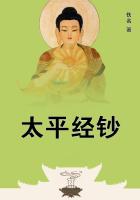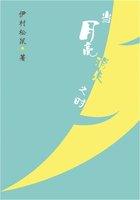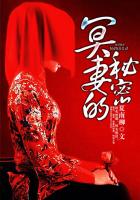CHURCH AND STATE
The Russian Orthodox Church--Russia Outside of the Mediaeval Papal Commonwealth--Influence of the Greek Church--Ecclesiastical History of Russia--Relations between Church and State--Eastern Orthodoxy and the Russian National Church--The Synod--Ecclesiastical Grumbling--Local Ecclesiastical Administration--The Black Clergy and the Monasteries--The Character of the Eastern Church Reflected in the History of Religious Art--Practical Consequences--The Union Scheme.
From the curious world of heretics and Dissenters let us pass now to the Russian Orthodox Church, to which the great majority of the Russian people belong. It has played an important part in the national history, and has exercised a powerful influence in the formation of the national character.
Russians are in the habit of patriotically and proudly congratulating themselves on the fact that their forefathers always resisted successfully the aggressive tendencies of the Papacy, but it may be doubted whether, from a worldly point of view, the freedom from Papal authority has been an unmixed blessing for the country. If the Popes failed to realise their grand design of creating a vast European empire based on theocratic principles, they succeeded at least in inspiring with a feeling of brotherhood and a vague consciousness of common interest all the nations which acknowledged their spiritual supremacy. These nations, whilst remaining politically independent and frequently coming into hostile contact with each other, all looked to Rome as the capital of the Christian world, and to the Pope as the highest terrestrial authority. Though the Church did not annihilate nationality, it made a wide breach in the political barriers, and formed a channel for international communication by which the social and intellectual progress of each nation became known to all the other members of the great Christian confederacy. Throughout the length and breadth of the Papal Commonwealth educated men had a common language, a common literature, a common scientific method, and to a certain extent a common jurisprudence. Western Christendom was thus all through the Middle Ages not merely an abstract conception or a geographical expression: if not a political, it was at least a religious and intellectual unit, and all the countries of which it was composed benefited more or less by the connection.
For centuries Russia stood outside of this religious and intellectual confederation, for her Church connected her not with Rome, but with Constantinople, and Papal Europe looked upon her as belonging to the barbarous East. When the Mongol hosts swept over her plains, burnt her towns and villages, and finally incorporated her into the great empire of Genghis khan, the so-called Christian world took no interest in the struggle except in so far as its own safety was threatened. And as time wore on, the barriers which separated the two great sections of Christendom became more and more formidable. The aggressive pretensions and ambitious schemes of the Vatican produced in the Greek Orthodox world a profound antipathy to the Roman Catholic Church and to Western influence of every kind. So strong was this aversion that when the nations of the West awakened in the fifteenth and sixteenth centuries from their intellectual lethargy and began to move forward on the path of intellectual and material progress, Russia not only remained unmoved, but looked on the new civilisation with suspicion and fear as a thing heretical and accursed. We have here one of the chief reasons why Russia, at the present day, is in many respects less civilised than the nations of Western Europe.
But it is not merely in this negative way that the acceptance of Christianity from Constantinople has affected the fate of Russia.
The Greek Church, whilst excluding Roman Catholic civilisation, exerted at the same time a powerful positive influence on the historical development of the nation.
The Church of the West inherited from old Rome something of that logical, juridical, administrative spirit which had created the Roman law, and something of that ambition and dogged, energetic perseverance that had formed nearly the whole known world into a great centralised empire. The Bishops of Rome early conceived the design of reconstructing that old empire on a new basis, and long strove to create a universal Christian theocratic State, in which kings and other civil authorities should be the subordinates of Christ's Vicar upon earth. The Eastern Church, on the contrary, has remained true to her Byzantine traditions, and has never dreamed of such lofty pretensions. Accustomed to lean on the civil power, she has always been content to play a secondary part, and has never strenuously resisted the formation of national churches.
For about two centuries after the introduction of Christianity--















